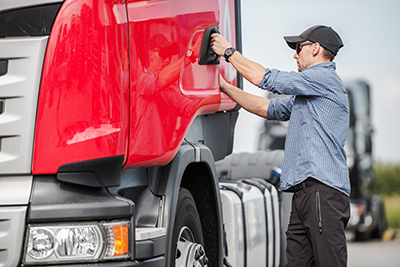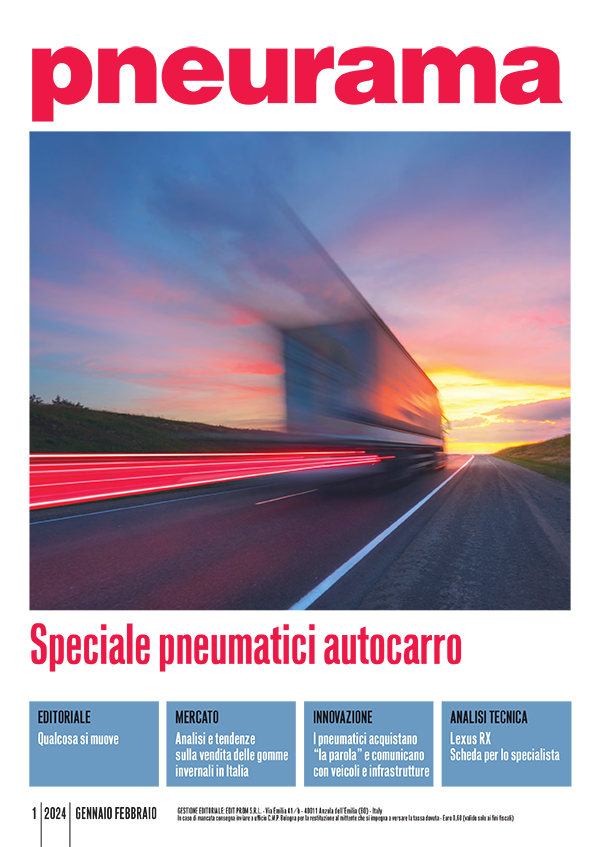Softening the impact of Covid on the economy and creating policies to revitalize it. "2022 will be a test of the Government's real ability to carry out the dual mission of containing the effects of Covid and reviving the national economy. But in order for these objectives to be achieved, without forgetting that there is an energy transition to promote, the Institutions must deal with all the stakeholders in the country, starting with road haulage companies that represent the link between the country’s productive framework and the needs of citizens".
This is how Massimo Artusi, vice-president of Federauto in charge of the Truck&Van sector, depicts this particular phase in the history of our country as well as for one of the most crucial sectors of our economy, road haulage. "It would be difficult, in fact - said Artusi - to achieve the ambitious goals set by the National Recovery and Resilience Plan with a road haulage sector ravaged by the effects of the Covid emergency, causing delays in the delivery of new vehicles, unstable vehicle prices and the surge in fuel cost, affecting also low emission vehicles, the object of many investments by hauliers." From the trucking world comes the suggestion that the entire haulage supply chain must move compactly to help the government deal with the issues at hand through balanced solutions that take into account the needs of all levels in the supply chain. Industry, energy suppliers and all other providers of goods and services should, in turn, refrain from taking advantage of increased demand to apply excessive and unjustified increases.
"This is the only way – states Artusi – in which the supply chain can have the necessary credibility to ask the Government for a targeted and functional use of the few resources assigned to the sector by the National Reform Programme and by the Budget Law for 2022, starting from a different management of state incentives, to be linked more to the use of capital goods than to purchasing vehicles, in order to privilege the end users. On these issues, in order not to address the Government in random order, it is necessary to open an urgent debate within the supply chain, so that all its protagonists can take a coherent and cohesive path". That fact that the Government intends to give important support to road transport, which in fact represents the vital link between production and marketing of goods, is clearly shown by the decrees and incentives that the Minister of Transport, Enrico Giannini has signed. One was created to promote the purchase of low environmental impact vehicles with one hundred million euro allocated according to two different decrees.
The first is called “Highly Sustainable Investments” and makes 50 million euro available to trucking companies from 2021 to 2026 for the purchase of new alternative vehicles, i.e. diesel-electric hybrids, electric or powered by compressed or liquefied natural gas. The amount of each single contribution depends on the type and overall mass and can vary from 4000 to 24 thousand euro. If a diesel vehicle is scrapped at the time of purchase, one thousand euro are added. In particular, for the purchase of a compressed natural gas vehicle or hybrid diesel-electric vehicle there is a contribution of 4,000 euro, regardless of the mass; for an electric vehicle with a total mass from 3.5 to 7 tons there is a contribution of 14,000 euro, which become 9,000 euro for vehicles with a total mass from 7 to 16 tons and 24,000 euro for those with a total mass greater than 16 tons (in the latter case liquefied natural gas vehicles are also included). These contributions are increased by ten percent if the purchase is made by small and medium-sized enterprises. Each company cannot receive more than 700 thousand euro.
The second decree is entitled "Investments aimed at the renewal and technological upgrading of commercial fleets" and concerns contributions for the purchase of Euro VI diesel vehicles, against the simultaneous scrapping of old vehicles, and trailers or semi-trailers used for combined rail and sea transport and equipped with innovative devices aimed at ensuring greater safety and energy savings. In this case fifty million euro are allocated for the two-year period 2021-2022, 35 million of which for diesel, ten for trailers and five for a further contribution to alternative vehicles.The contribution for the purchase of diesel vehicles is equally distributed over the two-year period and applies to those with a mass greater than 3.5 tons against the scrapping of similar units.
New vehicles must have Euro VId Final engines. The single contribution depends on the overall mass of the vehicle: those with a mass between 3.7 and 7 tons obtain 3,000 euro, those with a mass between 7 and 16 tons obtain 7,000 euro and those with a mass greater than 16 tons obtain 15,000 euro. To qualify for the benefit, a company must scrap a vehicle in the same weight range corresponding to the one purchased for each requested benefit.
For the purchase of “eco-friendly” vehicles - diesel-electric hybrids and compressed or liquefied natural gas - each contribution is the same as those provided for by the Decree on high sustainability investments. If a diesel vehicle of a class lower than Euro VI is also scrapped, the contribution increases by 1,000 euro. There is also a contribution for the conversion from thermal to electric vehicles with a total mass of up to 3.5 tons equal to 40% of the expenditure, with a maximum of 2000 euro.The contribution for intermodal trailers and semi-trailers applies to units that meet the Uic 596-5 regulation for trains and Imo for ships. The benefit is also valid for trailers, semi-trailers or equipment for temperature-controlled transport that meets the Atp standards as long as the refrigerator engine is compatible with Stage V, or in the presence of an autonomous cryogenic unit detached from the vehicle engine or electric and using refrigerant gases with Gwp less than 2500. To obtain the contribution, trailers and semi-trailers must have at least one of the safety devices listed in the annex to the Decree. The value of the contribution varies from 10% of the purchase cost for small companies, a value that rises to 20% for medium-sized companies, while large companies can rely on a contribution of 3000 per unit.
Postponement of licence and qualification card expiry date
 The extension of the state of emergency from December 31 to 2021 to March 31, 2022, has also led to the postponement of the expiration of Drivers’ licenses and Driver Qualification Card, which was moved to ninety days after the end of the state of emergency, i.e. to June 29, 2022. As far as licenses that have expired and need to be renewed, in Italy those expiring between January 31, 2020 and March 31, 2022 are valid until June 29, 2022. To circulate in other EU countries, the situation varies depending on the expiry date: between February 1, 2020 and May 31, 2020 licences are still valid until 13 months after the normal expiry date; between June 1, 2020 and August 31, 2020 they are valid until July 1, 2021; between September 1, 2020 and June 30, 2021 they are valid until 10 months after the normal expiry date.
The extension of the state of emergency from December 31 to 2021 to March 31, 2022, has also led to the postponement of the expiration of Drivers’ licenses and Driver Qualification Card, which was moved to ninety days after the end of the state of emergency, i.e. to June 29, 2022. As far as licenses that have expired and need to be renewed, in Italy those expiring between January 31, 2020 and March 31, 2022 are valid until June 29, 2022. To circulate in other EU countries, the situation varies depending on the expiry date: between February 1, 2020 and May 31, 2020 licences are still valid until 13 months after the normal expiry date; between June 1, 2020 and August 31, 2020 they are valid until July 1, 2021; between September 1, 2020 and June 30, 2021 they are valid until 10 months after the normal expiry date.
The same extensions are valid for the Driver Qualification Card, and also in this case with a distinction between Italy and the EU. The expiry date of end-of-course certificates to obtain or renew the Cqc certificates or Adr license has also been extended: the documents issued from January 31, 2020 to March 31, 2022 will be valid until June 29, 2022. For the Cqc reinstatement exam, for the purposes of calculating the two years from the expiry date of the Cqc held, the period between January 31, 2020 and June 29, 2022 is not taken into account.
Certificates for the transport of dangerous goods Adr are also postponed. Drivers training certificates was also extended in Italy to 29 June 2021 for documents issued between 30 January 2020 and 31 March 2021, but this applies only to Italy. The extension also applies to exams to obtain licenses and the provisional licences. Those who apply for the exam between January 1, 2021 and March 31, 2022 will be able to take the test within one year of the date the application is submitted and accepted. Provisional licences expiring between January 31, 2020, and March 31, 2022, are extended to June 29, 2022. The postponement also affects MOT inspections.


